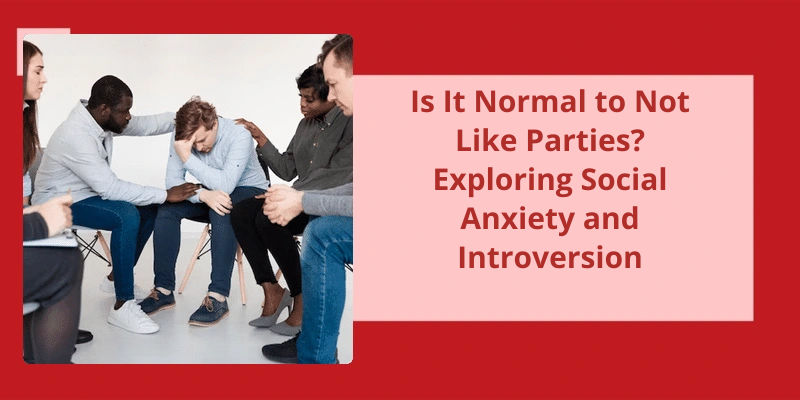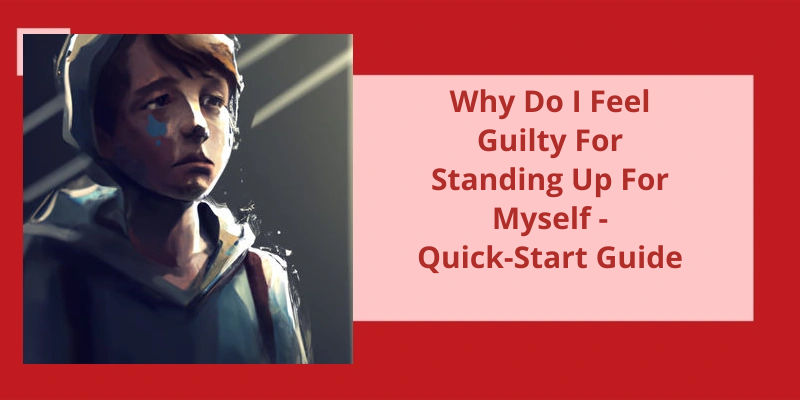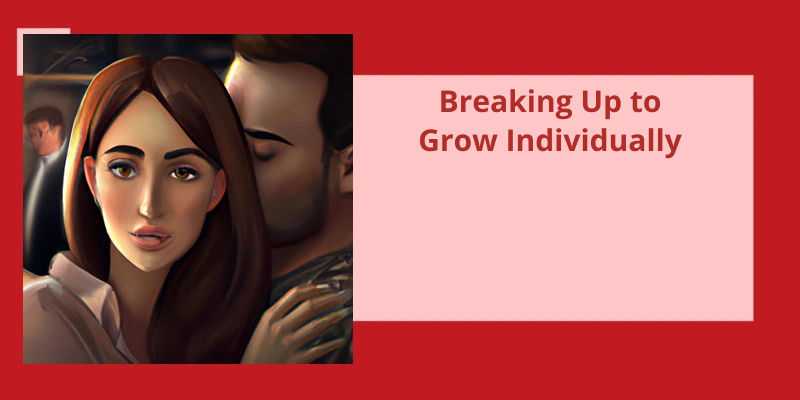As human beings, we’re all unique individuals with our own sets of likes and dislikes. While some people thrive in social gatherings and revel at the opportunity to meet new people, others find themselves feeling drained and uncomfortable in similar situations. For those who fall into the latter category, the idea of attending a party may not seem particularly appealing. However, this doesn’t necessarily mean that there’s something wrong with those individuals. In fact, it’s entirely normal to not like parties, and there are many reasons why someone may feel this way. Exploring these factors can shed light on the topic and help us gain a better understanding of why people are the way they are.
Is It Wrong That I Don T Like Parties?
There’s absolutely nothing wrong with not liking parties. In fact, it’s quite common for people to feel this way. Parties can be overwhelming and chaotic, and not everyone thrives in those types of environments. For introverted individuals, parties can be especially draining and anxiety-inducing. If parties aren’t your thing, that’s perfectly okay.
It’s important to understand that everyone is unique, and we all have our own likes and dislikes. For some people, parties are a way to socialize and let loose. For others, they may prefer quieter activities like reading or spending time outdoors. By accepting and acknowledging our differences, we can learn to appreciate each other for who we really are.
Social pressure can often make people feel like they need to enjoy parties in order to fit in. However, it’s important to remember that it’s okay to be yourself, even if that means not liking parties. In fact, being true to yourself will help you attract like-minded individuals and build more meaningful relationships.
If you find yourself feeling guilty for not liking parties, try to work through those feelings and understand where they’re coming from. Maybe you feel like you’re missing out on something, or perhaps you feel like your lack of enthusiasm for parties is negatively impacting your social life. It could be helpful to talk to a therapist or trusted friend to work through these emotions.
What matters most is that you’re happy and comfortable in your own skin. Embrace your introverted tendencies and find other ways to connect with people that feel more authentic to you. Remember, there’s no right or wrong way to socialize – everyone has their own unique preferences.
Understanding why some people don’t enjoy parties is important, as it can help hosts create a more welcoming environment for their guests. For those who struggle with social anxiety or sensory overload, parties may not be the best fit. However, with proper preparation and a little understanding, even those who don’t typically enjoy parties can have a great time. With that in mind, let’s explore some tips for making the most of your next party experience.
Why Do Some People Don’t Like Parties?
Some people may feel like parties are just a never-ending social obligation, or they might feel like they’ve to put on a certain persona or engage in small talk that they find exhausting. For introverted individuals, parties can be a draining experience as they prefer more intimate settings where they can have deeper conversations without feeling rushed. The energy required to engage in a large social setting can be depleting, leading some individuals to opt-out of such events.
Another reason someone might not enjoy parties is that they’ve had negative experiences in them. Maybe they’ve been in a situation where they were made to feel uncomfortable or left out. Similarly, social anxiety could be a factor. If an individual worries about being judged or scrutinized, that could cause them to avoid large gatherings altogether. Additionally, peoples preferences and lifestyles come into play; for instance, someone who values a healthier lifestyle will likely prefer to attend events that promote that lifestyle, such as seminars and classes.
In some instances, it could be down to a persons upbringing or cultural background. Someone who grew up in a quieter household may find party settings over stimulating and noisy. Alternatively, someone from a more reserved cultural background may not value the concept of parties as much. In such a case, preference isn’t a matter of right or wrong but rather a reflection of how people are brought up, their experiences, and cultural values.
Ultimately, everyone has the right to make choices about their social life. While parties can be a fun way to connect with others and make new friends, they aren’t the only way to socialize. There are plenty of other ways to engage with people in a more intimate and meaningful way that don’t require being in a large social setting. So, if parties aren’t your thing, know that it’s perfectly normal, and you can still live a fulfilling social life by finding the activities and events that best suit your taste.
Tips for Those Who Are Hesitant to Attend Parties but Still Want to Improve Their Social Life
- Start small by attending events with people you already know, like a coworker’s birthday party or a friend’s casual get-together.
- Choose events that align with your interests or hobbies. This will give you an automatic conversation starter with others who share similar interests.
- Arrive early to give yourself time to greet the host and get comfortable in the space before it gets too crowded.
- Have some conversation starters in mind ahead of time, like asking about someone’s favorite book or movie.
- Remember that it’s okay to take breaks or step outside for some fresh air if you start feeling overwhelmed.
- Try to set a goal for the event, like meeting at least one new person or staying for a certain amount of time.
- If all else fails, bring a friend or partner along for support.
However, there are deeper psychological reasons why humans are drawn to parties and social gatherings. From a young age, we learn that having friends and a social network is important for our well-being. Parties provide a space for us to connect with others, build relationships, and create memories. In this article, we will explore the various psychological factors that make partying such a popular activity for humans.
What Is the Point of Partying?
Theres something about coming together with others in a festive atmosphere that can be incredibly rejuvenating. Party-goers enjoy the energy and excitement of being with a group of people who’re all there for the same reason – to have a good time. For many, this is an opportunity to let their hair down and escape from the daily grind, even if just for a little while.
At it’s core, partying is about connecting with others. It’s an opportunity to meet new people, strengthen current relationships, and build a sense of community. In our increasingly digital and solitary world, this sense of connection is more important than ever before. In a way, a party is a portal into a different space where we can interact with other humans in a way thats both fun and meaningful.
Theres also a celebratory element to partying that adds to it’s allure. Whether it’s a birthday party, a graduation celebration, or a holiday gathering, people often use parties as an opportunity to mark a special occasion. This gives everyone a reason to let loose and have a good time. In many ways, the act of celebrating is an act of gratitude, as we express our appreciation for the good things in life.
Of course, partying isnt always a positive experience. It’s not uncommon for people to overindulge in alcohol or drugs at parties, leading to negative consequences and even dangerous situations. Additionally, some people feel pressured to attend parties when they don’t really want to, which can be stressful and uncomfortable. It’s important to strike a balance between enjoying the social aspect of parties while also taking care of ourselves and being mindful of our own boundaries.
Ultimately, the point of partying is to have fun. It’s a chance to celebrate, connect with others, and let loose. So next time youre invited to a party, take a chance and give yourself permission to enjoy the experience. Who knows – you might just have a blast!
Source: Why do people like parties? I see no point in going to … – Quora
However, there are certain situations where you may feel pressured into attending a party or social event, whether it be for work or to maintain friendships. In these cases, it can be useful to have strategies for navigating these situations and feeling comfortable in your decision to attend or not attend.
Is It OK to Not Want to Go to a Party?
However, it’s important to remember that it’s also okay to step out of your comfort zone every once in a while. Going to a party can be a social and cultural experience that exposes you to new people and ideas. It can also be an opportunity to have fun and let loose a little. So while it’s fine to not want to go to parties all the time, it’s also important to remain open-minded to new experiences.
Furthermore, it’s important to remember that your worth and value don’t come from how often you party or how social you are. Everyone has different personalities and interests, and thats what makes us unique. It’s okay if you prefer quiet nights at home or smaller gatherings with close friends. Your worth as a person isn’t determined by how much you party or how many friends you have.
It’s all about finding a balance that works for you. If partying isn’t your thing, thats okay. But don’t forget to step out of your comfort zone and try new things from time to time. You’re valuable and worthy regardless of your interests and preferences.
How to Politely Decline an Invitation to a Party
If you’ve received an invitation to a party but can’t attend, it’s important to decline politely. A simple and straightforward way to do this is to thank the host for the invitation and let them know why you won’t be able to attend. You can also express regret for missing the event and offer to catch up with the host another time. It’s best to decline in a timely manner so that the host can plan accordingly.
However, if it’s a loud, crowded and chaotic environment where I don’t know anyone, then I’m likely to feel overwhelmed and uncomfortable. So, let’s explore how introverts can make peace with the party scene and have a pleasant experience while staying true to their personality traits.
Can Introverts Enjoy Parties?
However, if it’s a loud, crowded setting where I don’t know many people, then Ill likely feel overwhelmed and anxious. Sometimes, introverts may need to take breaks from a party to recharge and gather their thoughts before diving back in.
It’s essential for introverts to be mindful of their boundaries and comfort levels when attending parties. That means saying no to invitations that might not be a good fit and not feeling guilty about it. It’s perfectly acceptable for introverts to decline an invite in favor of a more low-key activity that theyll enjoy more.
Another thing to remember is that parties don’t always have to involve large crowds or loud music. There are plenty of ways to enjoy social time without feeling overwhelmed. For example, a small dinner party with a handful of friends can be an ideal setting for introverts. They can have in-depth conversations without feeling pressured by a larger group of people.
It’s important to note that introverts and extroverts both have unique advantages when it comes to parties. Meanwhile, introverts can bring a more thoughtful, reflective energy to a gathering, which can be equally valuable.
Ultimately, whether an introvert enjoys parties or not depends on their personal preferences. Meanwhile, those who don’t enjoy parties should feel empowered to say no and not feel guilty about prioritizing their well-being. Overall, introverts can enjoy gatherings as long as theyre mindful of their comfort levels and boundaries.
But sometimes, even with a valid reason, you still may not feel like socializing with a large group of people. It’s important to listen to your own feelings and prioritize your own mental health. Here are a few tips for what to do when you don’t feel like going to a party.
What to Do When You Don’t Feel Like Going to a Party?
Youre feeling under the weather. Youre feeling overwhelmed and need some alone time. You don’t know anyone else going to the party. You need to catch up on some work or responsibilities. Whatever the reason, it’s important to be honest and respectful when declining an invitation. Avoid making excuses or lying about why you cant attend. Your honesty will be appreciated and respected in the long run.
When declining an invitation, it’s important to think about the relationship you’ve with the host and the importance of the event. If it’s a close friends birthday party or a family members celebration, it may be more difficult to decline. In this case, it’s important to be upfront about why you cant attend and perhaps offer an alternative celebration at another time.
If youre feeling guilty about declining an invitation, remember that it’s okay to prioritize your own needs and wellbeing over attending social events. It’s important to remember that socializing should be enjoyable and not feel like an obligation.
If you find yourself frequently declining invitations, it may be a sign that you need to reassess your relationships or work on finding a better balance between socializing and taking care of yourself. Consider talking to a therapist or trusted friend about your feelings and exploring ways to cope with social anxiety or other underlying issues.
How to Politely Decline an Invitation Without Hurting the Host’s Feelings
Sometimes, we may receive an invitation that we can’t accept due to various reasons. To politely decline such an invitation without hurting the host’s feelings, it’s important to express regret for not being able to attend and provide a brief explanation for the decline. It’s also important to thank the host for the invitation, extend well wishes for the event and offer to connect with them again soon. By responding in a respectful and thoughtful manner, we can decline an invitation without damaging any relationships.
Conclusion
It's important to remember that just because someone doesn't enjoy parties, it doesn't make them any less sociable or fun-loving than those who do. We all have our unique interests and preferences, and that’s what makes us special. It's essential to embrace who we’re and what makes us happy, even if it doesn't align with societal expectations. So, if you're not a party person, don't worry, you aren’t alone, and there’s nothing wrong with you. Instead, find joy in what you do love and celebrate your individuality.






